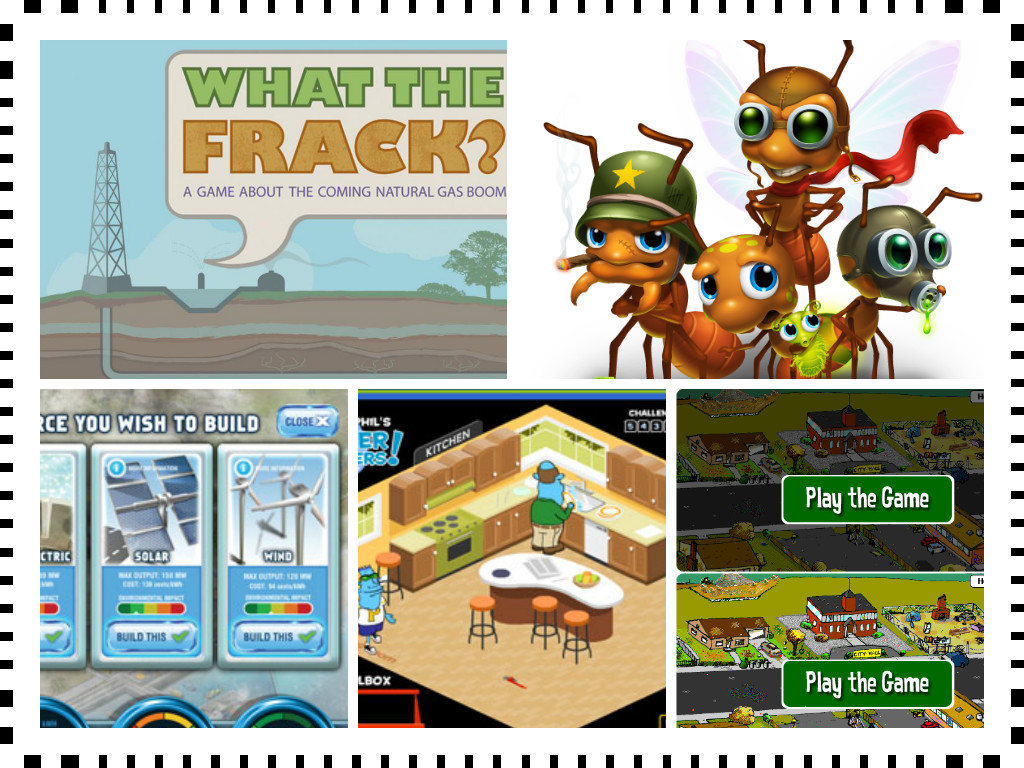— Pratima H
Mankind has been playing all sorts of games with environment and we know the story already. The plot could not have been more twisted when we see how some people are tagged as climate change alarmists even amidst today’s state of affairs, or shall we say, state of tsunamis, extreme winters, chaotic rainfalls and what not.
The ‘sky may not be falling’ for some but it never harms to have some fun while you discover and learn the happenings en route to the Dooms’ Day some apprehend so much.
The game universe is thankfully flooded with a big range of options and they swing from nerdy ones to wicked ones quite sm oothly enough. Some of these sound academically-inclined with the intent of teaching our next generation both the sides of climate change. Some of these are just plain fun with some dose of real dangers sprinkled in those scripts we enjoy playing. Nevertheless, they form a good sign of how different people are reacting to the climate change alarm or hoax, as some prefer to call it.
oothly enough. Some of these sound academically-inclined with the intent of teaching our next generation both the sides of climate change. Some of these are just plain fun with some dose of real dangers sprinkled in those scripts we enjoy playing. Nevertheless, they form a good sign of how different people are reacting to the climate change alarm or hoax, as some prefer to call it.
The menu is huge and endless. Many waste management and recycling games that give a hang of how corporate world and its ways matter. For instance, Dump Town, where you pick different pragmatic approaches to make the town green by establishing reuse centers, composting, recycling centers and programs including grass cycling and home yard trimmings. There are many more of this ilk that extends into how corporate can change their angles and the list is infinite.
Then there is Enviro Boarder, a recycling game where the object is to use a skateboard to collect reusable goods off the street and put them into designated recycling bins. Besides that, a host of water conservation games teach and brush our skills into taking some matters in our own hands, at least in our neighbourhoods.
Similar to the genre is ‘Water Busters’ that lets you play the role of Phil Dumpster who must lower his family’s water consumption and reduce his water bill.
If Climate Change is your adrenaline, then you can go for ‘Climate Defense’, a single-player tower defense game that tasks the player with preventing global warming by absorbing carbon dioxide (CO2) before it builds up in the atmosphere. It has been avowed as a well-researched current events game rather than an entertaining or fun game, specially for its second game mode called “Let’s Pretend,” where the data on which the game is based is altered to provide a winnable experience. The seriousness of the actual game is not hard to fathom as you gradually discover that near-impossibility to solve the problem using the tools that are available to the player. It is a game as well as a peek into the  big debate surrounding the entire global community, and hence all the more contemporary.
big debate surrounding the entire global community, and hence all the more contemporary.
Think of decision-making skills and there is ‘What the Frack’, a single-player, text-based game that challenges players to get inside the fracking debate. It was interestingly a product of the 2013 Global Game Jam, and made in just 48 hours by a team of 4 individuals. The design, as the game has been explained so far, was affected by several “diversifiers,” constraints chosen by the designers to challenge their skills and shape their game. What’s worth noting is that the game could only take place on one screen, feature negligible violence, and attempts to entail some larger political, environmental or social issues. In fact, What the Frack was chosen to be featured at the Games for Change 2013 Festival along with four other “Bigger Picture” games.
For the imaginative-minded, there is always a ‘Tyrant’. It is an anthill game that helps you work on your strategic skills while you are running a leafcutter ant colony, ultimately aiming to gather enough food for the larvae to hatch into flying ants and expand the colony elsewhere. Taking a leaf out of how ant civilizations function and thrive, while challenging players to balance limited resources among food gathering, defending territory from invaders, and maintaining the ants’ home base; the game leaves a lot of good hang-over to practice on our own civilizations. It was developed and partnered with Amplify, a subsidiary of News Corp., as perhaps, a learning game therefore and has already been rolled out to U.S. schools as part of the Amplify pilot program.
As to well-lauded games, there is that Eskom Energy Planner game that was an awards nominee at the Games for Change Festival in the Most Significant Impact category. Notably, this single-player, management simulation equips one’s dexterity to build power stations in order to meet the electrical needs of the city, adjusting power output for both peak and winter usage. The interesting part is that each type of power plant the player builds also has positive or negative impacts on the happiness and environmentally-friendliness of the city. In this way, the most efficient option is not always the best option. Now how’s that for some reality check!
So ants, corporate-hi-fliers or climate soldiers, don your avatar and play for a good cause.












Recent Comments